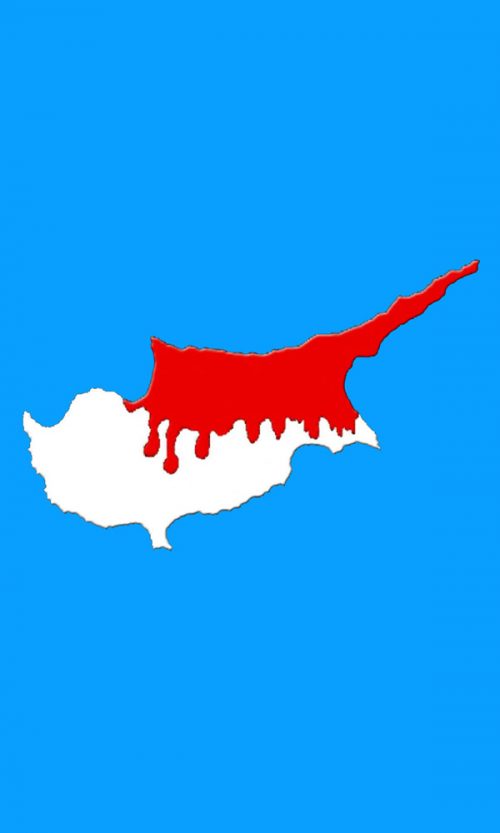NATO tolerance of Cyprus’ occupation weakens case on Ukraine
By Michael Rubin
After two years of a heroic defense that cost Russia more than one-third of its active duty military, Ukraine is nearing its breaking point. It is short of both men and ammunition.
Still the North Atlantic Treaty Organization (NATO) continues its uncompromising position on Ukraine’s sovereignty. Frankly, NATO is right. The defensive Alliance considers Russia’s 2014 annexation of Crimea to be “illegal and illegitimate.” No NATO members recognize Russia’s claim to Crimea, nor does NATO recognize Russian attempts to annex Donetsk, Luhansk, Kherson and Zaporizhzhia. At the 2023 Vilnius Summit, NATO heads of state issued a communique that stated, “We do not and will never recognize Russia’s illegal and illegitimate annexations, including Crimea.”
NATO also dismisses claims by both the Kremlin and its apologists that ethnic Russian Ukrainians accept Russian occupation. “The sham referenda in these regions were engineered in Moscow and imposed on Ukraine. They have no legitimacy, and NATO does not recognize them,” a NATO factsheet explains. Russian settlers entering the occupied zone have no legal legitimacy or claim.
At his annual State of the Union address, US President Joe Biden castigated those who would end American support to the besieged country. “Assistance for Ukraine is being blocked by those who want us to walk away from our leadership in the world,” he declared, adding: “It wasn’t that long ago when a Republican president, Ronald Reagan, thundered, ‘Mr Gorbachev, tear down this wall.’ Now, my predecessor, a former Republican president, tells Putin, ‘Do whatever the hell you want.’”
Behind the scenes, though, cracks show. National Security Adviser Jake Sullivan has put out feelers to his Russian counterpart for talks in Yerevan, Armenia to discuss a resolution that would involve Russian acquisition of Ukrainian territory as well as Ukraine’s disarmament. Any reward for Russian aggression, though, only encourages further aggression. The only question is whether Moldova, the Baltic states or northern Kazakhstan are next in Russia’s cross-hairs.
Biden and European leaders may be frustrated at former president Donald Trump and his isolationist supporters for both impeding assistance to Ukraine and questioning the utility of NATO. NATO, however, must shoulder much of the blame for policy precedents that convince the Kremlin that invasion, occupation and annexation pays dividends.
NATO, for example, remains largely silent and impotent on the precedent for Russia’s land grab against Ukraine: NATO member Turkey’s invasion and occupation of northern Cyprus. European leaders can, with anti-American verve, blame former secretary of state Henry Kissinger and absolve themselves for responsibility for Turkey’s actions in Cyprus. Kissinger may represent original sin, but today’s European, US, and UN quiet acquiescence signals that time and an aggressor’s perseverance matter more than moral clarity and international law.
Nor can NATO members simply dismiss Cyprus as not their concern given its non-membership in the Alliance. At a minimum, Cyprus is as European as Ukraine. NATO has also undertaken missions in Libya, Afghanistan and off the coast of Somalia.
Ukraine certainly needs ammunition replenishment. Ukrainians hold at bay Russian imperialists who threaten all Europe. But if NATO truly wants to show Russian President Vladimir Putin that Europe does not tolerate aggression, it is time to get NATO’s own house in order.
NATO must stop tolerating the aggressor within its own ranks. If Biden and European leaders want the Kremlin to recognize Western fortitude in the face of aggression, they must cease accepting irredentism in their own ranks. Any diplomatic process that normalizes Turkish aggression or does not return Cyprus to the status quo ante remains a green light for Russian aggression. So too does US and European tolerance to host offices for the self-declared “Turkish Republic of Northern Cyprus” or to allow airlines that fly to occupied Cypriot airports to also utilize US or European airports. Turkey should suffer every US or European sanction Russia does. After all, Ankara and Moscow’s crimes are the same.
Biden is right that Ukraine matters, but resistance to a neighbor’s imperial designs should be the rule, not the exception. There is no difference between Russian aggression and Turkish aggression in Europe. It is time Western policy reflected that fact.
Michael Rubin is director of policy analysis at the Middle East Forum and a senior fellow at the American Enterprise Institute
The article was published on ekathimerini on March 19, 2024
